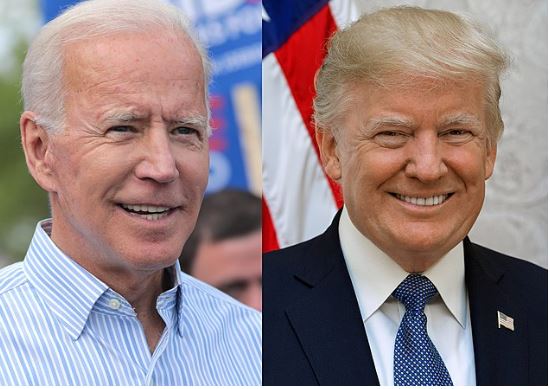By Lauren Shin, AsAmNews Intern
The 2024 presidential debate between Joe Biden and Donald Trump has several implications for the Asian American community, reflecting broader national trends in voter behavior and candidate support.
Over the past two decades, Asian Americans have been the fastest-growing group of eligible voters in America. Typically leaning Democratic, 72% of Asian voters said they voted Democrat Joe Biden for president during the 2020 election, according to the Pew Research Center.
Due to the majority of Asian American eligible voters being naturalized citizens instead of U.S.-born citizens, policies on immigration reform and international relations are especially crucial factors for the Asian American voters.
During Thursday’s presidential debate, Trump accused Biden of opening the southwest U.S. borders to unauthorized migrants, stating that “[Biden] decided to open up our border, open up our country.” This outlook may raise concerns among immigrant groups, including Asian American voters, influencing their legal status, family reunification and overall sense of belonging in the United States.
Forbes explains that in his first term, Trump’s administration implemented stricter criteria for H-1B visas, which were crucial for many Asian American professionals. These changes included higher scrutiny of visa applications and increased denial rates, impacting the ability of Asian Americans to work and stay in the U.S.
Trump’s previous attempts to end the Deferred Action for Childhood Arrivals (DACA) program further create uncertainty for Asian immigrants who arrived in the U.S. as children. Although the Supreme Court blocked the immediate termination of DACA, the ongoing legal battles have left many in limbo regarding their future in the country (NPR).
Regarding international relations, Trump’s stance on Asian relations emphasizes a hardline, unilateral approach. During his presidency, he engaged in a trade war with China, imposing tariffs on Chinese goods to address trade imbalances and intellectual property concerns. His administration’s strategy included pressuring China through bilateral negotiations and unilateral actions, such as the trade agreement signed in 2020.
In a potential second term, Trump has indicated plans to further intensify these policies. He suggested ending China’s trading status and imposing a universal baseline tariff on all U.S. imports (Council on Foreign Relations).
Biden contrasts with a more multilateral strategy, which seeks alignment with allies to manage relations with China. Biden’s administration, like Trump, views China as a prominent competitor but prefers a predictable trend towards “decoupling” rather than direct confrontation (The Diplomat).
For Asian Americans, how each candidates’ policies align with their own values and address their unique challenges will likely influence their voting behavior in the upcoming 2024 election.
AsAmNews is published by the non-profit, Asian American Media Inc. Follow us on Facebook, X, Instagram, TikTok and YouTube. Please consider making a tax-deductible donation to support our efforts to produce diverse content about the AAPI communities. We are supported in part by funding provided by the State of California, administered by the California State Library in partnership with the California Department of Social Services and the California Commission on Asian and Pacific Islander American Affairs as part of the Stop the Hate program. To report a hate incident or hate crime and get support, go to CA vs Hate.


